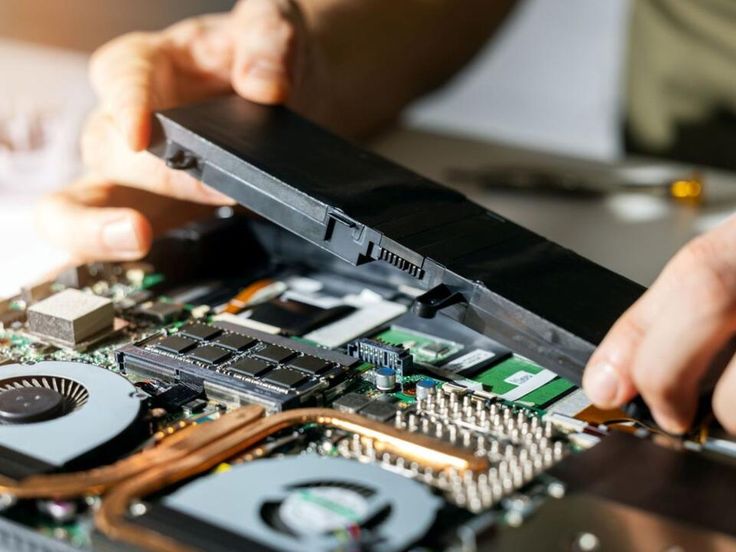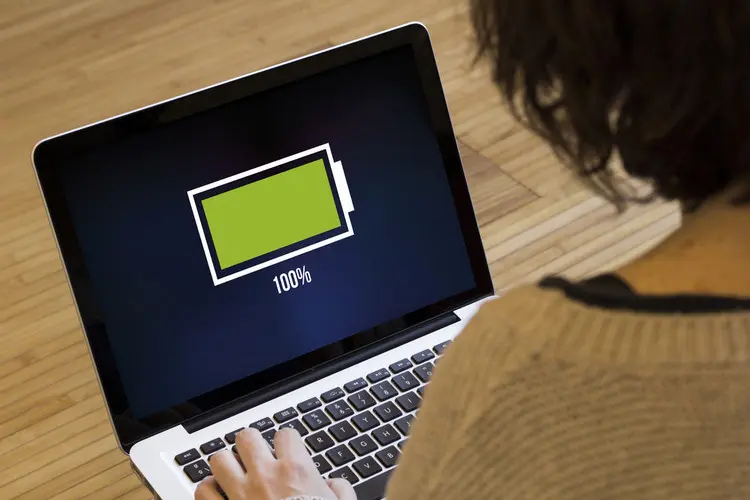Have you noticed a decrease in your laptop’s battery life recently? This is not uncommon. The battery life of machines would degrade as they get old. This is a natural occurrence. A poor battery life would disrupt your work, and negatively impact your productivity. Fortunately, you don’t have to stress out for this. There are a few ways to get a better battery life that we will highlight in this guide.
How a Laptop Battery Works ?
Before you learn how to care for your battery, you must know a bit about its mechanics. Most modern laptops use Lithium-Ion (Li-ion) or Lithium-Polymer (Li-Po) batteries. These batteries are popular owing to their high energy density. They can store immense power in a compact form. Plus, they are more durable as compared to older battery types.
That’s not all. They have a finite lifespan measured in “charge cycles,” or the number of times the battery can be fully charged and discharged. A regular laptop battery will have 300-500 cycles. After this limit, their capacity to hold a charge begins to decline noticeably.

To extend battery life, you should focus on the charging habits and usage patterns.
How to Charge a Laptop to Extend Battery Life?
Here’s a frequently made mistake among battery-degrading practices. People keep the laptop at either 100% or 0% for prolonged periods. You must skip this habit, and focus on these things:
Avoid Constant 100% and 0% Charge Levels
Lithium-ion batteries deteriorate faster when they are constantly kept at 100% or drained to 0%. Your aim should be to keep the charge level between 20% and 80%. Ultra-modern laptops have better smart charging features that will automatically maintain this balance. If yours has this feature; you should enable it to take advantage of it.
Unplug After Full Charge
Though it is not harmful to leave your laptop plugged in for long periods, we advise unplugging it. If it is fully charged you can unplug to decrease the risk of overheating. Overheating damages the battery over time. Don’t leave it to charge overnight.
Partial Charging vs. Full Charging
If you are frequently using your laptop on the go, the best way is to adopt a partial charging routine. This puts less pressure on the battery. Partial charges (somewhere between 20-80%) are easier on lithium-ion batteries than going from 0% to 100%.
Use Your Laptop in Battery-Saving Mode
You must already know about the battery-saving mode. A better battery life does not entirely depend on charging. The way you use your laptop also has a huge impact. Laptops have a power-saving mode. This is made specifically to optimize battery consumption by adjusting performance settings:
- Adjust Screen Brightness: The screen is one of the biggest power draws on your device. You can decrease the brightness level or switch to a power-saving setting. This will extend battery life.
- Disable Unused Features: There are many functions in a laptop that are not being used. Functions such as Bluetooth, Wi-Fi, and backlit keyboards consume extra power. You can disable them if they’re not needed.
- Close Unnecessary Apps: Background applications are continuously running. Some of these are resource-intensive ones like video editing software and games. They will drain the battery quickly. Close them to reduce the battery pressure.
- Enable Power-Saving Modes: Windows and macOS have power-saving modes. In these modes, the system automatically reduces performance to prioritize battery conservation.
Temperature Management for Battery Health
Heat is the biggest threat to better battery life. Excessive heat gives a boost to the battery degradation. So you must keep your laptop cool:
- Avoid Extreme Temperatures: Batteries function best between 10°C and 35°C. Direct sunlight or high external temperatures will quickly overheat the system. This will damage the battery cells.
- Proper Ventilation: It is good to always Use your laptop on hard surfaces to prevent vents from being blocked. Blockage also causes overheating. Laptops that are used on beds or similar soft surfaces will heat up faster.
- Use Cooling Pads: If you perform power-intensive tasks, it is a must to have a cooling pad. Activities like video editing or gaming take up excessive battery. A cooling pad can provide extra ventilation and keep the laptop within a safe operating temperature.

Smart Storage for Better Battery Life
If you are not a frequent laptop user, and it stays shut for a long time, here is what you can do. Lithium-ion batteries perform at their peak capacity when stored with a charge level of around 50%. So, always keep it at 50 when you store it for a long time. A fully discharged or fully charged battery left unused is vulnerable to degradation. Always store the laptop in a Cool, and Dry Place. It must not face Heat that will speed up battery self-discharge.
Signs Your Battery Needs Replacement
No matter how much you care for the battery, a time will come when it will degrade. Excellent care will extend the battery life, but still, limits exist. All batteries have to degrade with time. If your battery is showing any of these signs, always consider a replacement; repairing it is good to prevent further worsening of the condition.
- If your laptop’s battery drains unusually fast even though you don’t use it much, it may be nearing the end of its life.
- A failing battery will overheat frequently. You will feel your laptop turning hot in short periods.
- If you notice any swelling at the back of the laptop, this is a critical issue. A swollen battery is unsafe and should be replaced immediately.
Laptops have diagnostic tools, such as the Windows Battery Report or macOS System Report. These tools give extensive information about the battery health. This way you can estimate how much longer the battery will last.
Final Thoughts!
If you want better battery life for your laptop, you must follow all the above-mentioned steps. It depends on a combination of smart charging habits, optimal usage, and temperature management. These are the expert-backed strategies that guarantee that your laptop’s battery will stay reliable for as long as possible. Proper battery care would save you from high-cost replacements.






